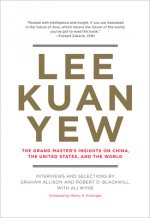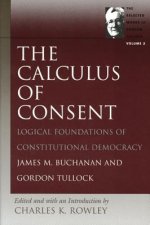
Kód: 01684430
EU Socio-Economic Governance
Autor Adam Balogh
Seminar paper from the year 2013 in the subject Politics - International Politics - Topic: European Union, grade: A- bzw. 1,7, Central European University Budapest (Department of Public Policy), course: EU Socio-Economic Governanc ... celý popis
- Jazyk:
 Angličtina
Angličtina - Vazba: Brožovaná
- Počet stran: 24
Nakladatelství: Grin Verlag, 2013
- Více informací o knize

Mohlo by se vám také líbit
-

Externe Eu-Governance
1079 Kč
Dárkový poukaz: Radost zaručena
- Darujte poukaz v libovolné hodnotě a my se postaráme o zbytek.
- Poukaz se vztahuje na celou naši nabídku.
- Elektronický poukaz vytisknete z e-mailu a můžete ihned darovat.
- Platnost poukazu je 12 měsíců od data vystavení.
Více informací o knize EU Socio-Economic Governance
Nákupem získáte 100 bodů
 Anotace knihy
Anotace knihy
Seminar paper from the year 2013 in the subject Politics - International Politics - Topic: European Union, grade: A- bzw. 1,7, Central European University Budapest (Department of Public Policy), course: EU Socio-Economic Governance, language: English, abstract: In the mid-1990s, welfare states in Europe were under acute strain. Unemployment had risen dramatically (Trubek/Mosher 2001, 6) and in 1997, 18 per cent of the population of the European Union (EU) lived in a household below the relative income poverty threshold (Armstrong 2010, 1). Although social policies were traditionally tasks of the nation-states, an increasing Europeanization of social exclusion and the inability of the member states to act in an increasing multi-level governance context led to the need for actions on a European level (Armstrong 2010, 2).The start was made with the European Employment Strategy (EES) (Trubek/Mosher 2001, 6), which became, due to its success, (Trubek/Trubek 2005, 349-351) the forerunner of the Open Method of Coordination (OMC) (Sabel/Zeitlin 2008, 289). The OMC, like the EES, is an Instrument of governance in the EU, which is based on voluntary cooperation and rests on soft law mechanism (Borrás/Jacobsson 2004, 189). Armstrong describes the function of the OMC in his Book about European policy coordination as follows: The function of the OMC is not to make policy itself but rather to provide a framework within which states are encouraged to identify policy problems and to seek solutions either within their own domestic systems or by learning from the experience of others (Armstrong 2010, 9). The reason for this soft law solution was the lack of political support for further transfers of legal competencies to the EU in social areas (Borrás/Jacobsson 2004, 190). But precisely because of this soft law nature, many critics accuse that the OMC is ineffective and even dangerous for further European integration (Trubek/Trubek 2005, 344, 351, 355).
 Parametry knihy
Parametry knihy
Zařazení knihy Knihy v angličtině Society & social sciences Politics & government
1004 Kč
- Plný název: EU Socio-Economic Governance
- Podnázev: In how far is the OMC an effective tool for European social governance?
- Autor: Adam Balogh
- Jazyk:
 Angličtina
Angličtina - Vazba: Brožovaná
- Počet stran: 24
- EAN: 9783656371588
- ISBN: 365637158X
- ID: 01684430
- Nakladatelství: Grin Verlag
- Hmotnost: 51 g
- Rozměry: 210 × 148 × 2 mm
- Rok vydání: 2013
Oblíbené z jiného soudku
-

Flash Boys - A Wall Street Revolt
244 Kč -

My Autobiography
291 Kč -

Report From Iron Mountain
330 Kč -

Wretched of the Earth
269 Kč -

State and Revolution
113 Kč -

Children of the Matrix
431 Kč -

Xi Jinping: The Governance of China
791 Kč -

Case Against the Sexual Revolution
373 Kč -

The Trigger
573 Kč -

Yoga of Eating
285 Kč -

The Lords of Poverty: The Power, Prestige, and Corruption of the International Aid Business
325 Kč -

Politics
1176 Kč -

Master of the Senate
589 Kč -

Reflections of a Nonpolitical Man
484 Kč -

Powershift
206 Kč -

Empire of Lies
359 Kč -

Political Writings
734 Kč -

J Curve
480 Kč -

Xi Jinping: The Governance of China II
643 Kč -

History of European Conservative Thought
593 Kč -

Justice and Development Party in Turkey
1150 Kč -

Accidental Superpower
427 Kč -

GREEN BOOK
182 Kč -

Abaddon Ascending: The Ancient Conspiracy at the Center of CERN's Most Secretive Mission
426 Kč -

Cold and the Dark
482 Kč -

Fight Like A Girl
258 Kč -

Giants
465 Kč -

Identity
298 Kč -

Lee Kuan Yew
495 Kč -

Deep State
386 Kč -

Next Decade
351 Kč -

Age of Ambition
283 Kč -

Return of Marco Polo's World
376 Kč -

Force of Reason
440 Kč -

STRANGE DEATH OF EUROPE
419 Kč -

Against Civilization
347 Kč -

Political Brain
355 Kč -

Politics: A Very Short Introduction
253 Kč -

Out of the Wreckage
427 Kč -

Urban Warfare in the Twenty-First Century
638 Kč -

Nuclear Weapons and Foreign Policy
576 Kč -

Trade Marketing, Category Management, and Shopper Marketing
2253 Kč -

Spirit of the Laws
598 Kč -

Psychology of Politics
512 Kč -

Liberalism and Its Critics
815 Kč -

Reveille for Radicals
345 Kč -

Voices from the Contemporary Japanese Feminist Movement
1280 Kč -

Calculus of Consent
365 Kč -

Chinese Machiavelli
1758 Kč
Osobní odběr Praha, Brno a 12903 dalších
Copyright ©2008-24 nejlevnejsi-knihy.cz Všechna práva vyhrazenaSoukromíCookies



 Vrácení do měsíce
Vrácení do měsíce 571 999 099 (8-15.30h)
571 999 099 (8-15.30h)